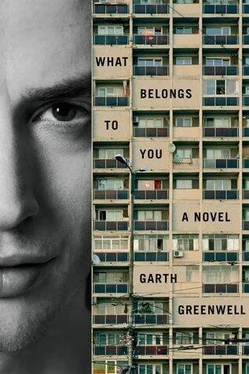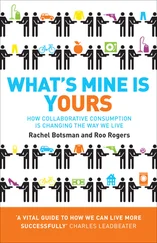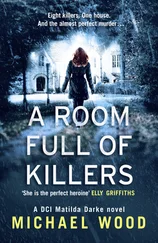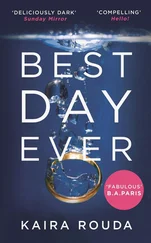I had begun to sweat, and I glanced at the latch at the top of the window, wishing I could reach up and pull it down. But I didn’t dare; everyone would have been upset, people here are convinced they can catch their death from a draft. There was a man standing in the space just in front of me, leaning against the window, who was moving slightly, not just with the bus but with a motion of his own, shifting his weight forward and then back, his coat dragging against the window. It was while he was leaning forward that I saw a fly on the pane of glass behind him. It was still, maybe numbed by the cold of the window, a common housefly that must have ridden in from the heated interior of someone’s apartment via the heated interior of someone’s clothes. In the summer flies are common on buses, of course, a buzzing nuisance, but this one seemed special; it must have survived against all odds to make it here, so deep in the season. It clung to the pane despite the shuddering of the bus, until finally it made a tiny movement upward, like an exploratory step up the glass. When the man leaned back, his coat falling over it again, I almost cried out to stop him. I waited for the fly to reappear, unable to look away from the spot I had last seen it. I had forgotten the stifling heat and the general misery of the ride in my concern for the creature and in my relief, when the man shifted again, to find it still intact. For the next few minutes I watched as the man leaned forward and back and the fly was covered and revealed. Almost every time the coat was lifted it made another movement upward toward the point where the man’s shoulder met the glass; Don’t do that, I said under my breath, that’s the wrong way. It was ridiculous to care so much, I knew, it was just a fly, why should it matter; but it did matter, at least while I watched it. That’s all care is, I thought, it’s just looking at a thing long enough, why should it be a question of scale? This seemed like a hopeful thought at first, but then it’s hard to look at things, or to look at them truly, and we can’t look at many at once, and it’s so easy to look away.
Downtown, at Orlov Most, Eagle Bridge, the bus finally got less crowded, with half or so of the passengers stepping off and many fewer getting on. The woman beside me stood up, much to my relief, and the man leaning against the glass left too, moving with the others to escape the bus. I looked eagerly for the housefly, and when I saw no sign of it I stood, before the new riders climbed on, and scanned the floor to see if it had fallen. But there was nothing there either, and I sat down again at a loss. There were only a few more stops before we entered Gotse Delchev and turned onto residential streets, and since I was unfamiliar with the route now I moved to be near the door, where I leaned out to read the name of each station that we passed. But I needn’t have worried; the polyclinic had its own stop and several people got off there, leaving the bus almost empty as we stepped down into the snow. It was a broad gray concrete structure of four or five stories, much larger than the clinic near the school, nearly a hospital. The steps leading up to the entrance were perilous, packed with ice, as was the unusable wheelchair ramp to my left. I climbed up carefully, planting both feet on a single stair before chancing another, feeling how easily I could lose my footing, feeling elderly, and wondering how the genuinely infirm could possibly manage. The ground floor of the building was a large, echoing space that seemed unfinished; the floors were untreated, little more than concrete, the walls coated in bare plaster. There was no reception or information desk, only a large notice board with the departments organized by floor, the doctors’ names on long plastic strips that could be taken out and replaced. I had the page with the name of the department I needed, but the woman from the clinic had written in a quick cursive hand I couldn’t quite make out. Some of the words on the board were familiar, ophthalmology, gynecology, but the transliterations were awkward, I had to sound them all out, and there were several I couldn’t make any sense of at all. As I looked around in confusion, I saw a woman in a white coat coming down the large central stairs, holding a plastic cup of coffee and clearly on her way out for a break, though the day had hardly begun. Excuse me, I said, using the politest form, proshtavaite , forgive me, as I held my page out to her, can you help me find this? She took it from me, and then her eyes flicked up once, from the paper to my face, almost without expression. She pointed me toward a far corner, where there was a sign that read Dermatologiya i Venerologiya . I recognized the first word, but the second took me a moment; we say venereal disease in English, of course, but I had never heard of a venereology department, and I wondered whether the word was used in the States. By its Latin roots it should have meant the study of love, and I wondered too how often that made it the right word for the people who came here, and whether it was the right word for my own predicament.
I pulled open the door and stepped into a long bare hallway of offices, lined at intervals with benches bolted to the walls. It was almost empty, I saw with relief; an elderly couple occupied one bench, a teenage boy another. At the far end there was a door that led outside, and above the last office on the left I saw a sign for registration. The door to the office was closed, but at my knock a voice called for me to come in. A middle-aged woman was sitting at a desk with a newspaper spread in front of her, her right hand resting by a cup of coffee, clearly absorbed in a morning routine. She didn’t look up as I entered, her eyes still scanning the page, and turned to me only as I spoke, with an interest sparked, I suspected, by my accent. She returned my greeting and then looked at me expectantly, waiting for me to explain why I was there. I’ve received a positive result on a test, I said, handing her the note I had been given by the other clinic, I’m here for a second one to confirm it. All right, she said, rising slowly from the desk, as if loath to leave her coffee; have you had any symptoms, she asked, any sores, using the word rani , wounds, and when I said that I hadn’t, or none I had noticed, I knew they could be painless and small, she asked why I had gotten tested in the first place, whether I had any reason to think I might be infected. I hadn’t anticipated the question, and I paused before responding. A friend came to see me, I said finally, he told me that he had this sickness, he said that I should be tested. She raised her eyebrows just slightly at this, and then she said So you had contact with this person, using that word, which is the same in the two languages, kontakt ; and I repeated it back to her, looking her directly in the eyes, Yes, I had contact with him. I wouldn’t accept the shame she seemed to want me to feel, and she acknowledged this, I thought, dropping her gaze as she reached past me to open the door. Dobre , she said, all right, follow me. She made quick work of me in a room across the hall, not speaking as she swabbed and drew blood, and once again I was surprised by the lack of gloves. Then she ushered me out with the promise that someone would see me when I returned that afternoon for my results.
I couldn’t bear the thought of spending hours in that long hallway with its bare benches, still occupied by the same patients, or would-be patients, who hadn’t moved and seemed resigned to a long wait. I needed to walk, even if it was hard going in the snow, so I exited through the door next to the registration office and descended a long ramp leading to the street. The air had warmed, it looked to be a beautiful day, sunny and clear as few had been that season, and already the snow and ice had softened, the surface giving way just slightly, slick and wet. I thought of Mitko and his new shoes, the old ones would already have been soaked through. I was dry in my winter boots, though they didn’t help much with the ice, and I made my way slowly down the ramp and then across the little street that ran the length of the building toward the main boulevard. It was a pleasant neighborhood, Gotse Delchev, prosperous and older than Mladost, with more trees and green spaces; it might even be lovely come spring, I thought. There were still the apartment blocks, that Soviet model of collective life, but there wasn’t the same randomness and glut here as in Mladost, where in the chaos after the fall of the old system space was snatched up and structures built, or half-built, without rhyme or reason, cheap and unplanned. Here, in Gotse Delchev, there were fewer new buildings, and the original plan of the neighborhood was still visible, its geometrical shapes. The shops I passed weren’t just the single-shelf affairs of Mladost, the little markets made up of prefabricated shacks; they were urban, even elegant, or at least aiming toward an idea of elegance. In front of some of them paths had been shoveled through the snow, something almost unheard of here. Even in the cold, and even at an hour when many people were at work, I passed people shopping or walking their dogs, and young people, university students maybe, busy about their lives, so that the streets I walked seemed vibrant to me, more vibrant than my own. But then almost everywhere I went I imagined a place more accommodating of the life I wanted, as if happiness were a matter of streets or parks, as maybe to a point it is; and with R. away for so long I was accustomed to thinking of my real life existing in some distant place or future time, projecting forward in a way that I was afraid might keep me from living fully where I was. R. must be up by now, I thought, he must be heading for his own clinic, with whatever feelings of apprehension or shame, with whatever feelings of remorse.
Читать дальше












